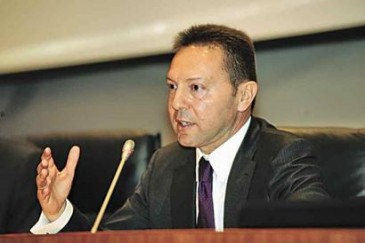By Marcus Bensasson, Bloomberg Business Week
The Greek government is more concerned with producing a primary budget surplus this year and returning to growth from the beginning of 2014 than on how to fill holes in its financing over the next years, Finance Minister Yannis Stournaras said.
Achieving these targets will be the “catalyst” to solve the problem of Greece’s financing gap, Stournaras said in an interview on Bloomberg Television’s “The Pulse” with Francine Lacqua and Guy Johnson today. He reiterated that according to a November agreement of euro area finance chiefs, Greece’s creditors would address the issue of its funding needs as long as Greece achieves a budget surplus before interest payments.
“There is no Plan B, everything has been agreed with the euro group,” Stournaras said. “What we’re trying to do now is to produce a primary surplus this year, complete these structural reforms and come back to positive growth rates. If we achieve these, then the rest of our problems will be solved.”
Greece is in the sixth year of a recession deepened by spending cuts and tax increases linked to a 240 billion-euro ($319 billion) bailout from the euro area and International Monetary Fund. The unemployment rate reached a record 27.4 percent in the first quarter. Joblessness has more than doubled since bailout funds started flowing in May 2010.
Funding Gap
IMF staff said in a report last week that Greece will probably need more money and debt relief to meet the aid program’s targets. The fund’s staff said 4.4 billion euros of financing has yet to be identified next year under the rescue package.
“Up to August 2014 Greece is fully covered,” Stournaras said. “For the remaining period the understanding is that if Greece satisfies all the preconditions then our partners will agree to cover the financing gap, so this is not a great concern to us.”
While Stournaras ruled out closing the gap through further budget tightening, he said the government is focusing on improving tax collection mechanisms. Implementation of the terms of the bailout program is priority and the government will meet its revised 1.6 billion-euro target for state-asset sales, he said.
“Further austerity is not a solution to the problem,” Stournaras said. “Now our concern is how to combine further fiscal adjustment with a return to growth.”









